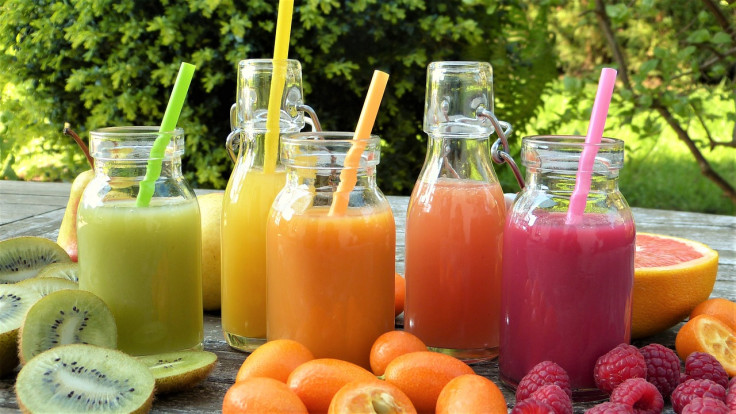
Which is better: eating a whole fruit or drinking the juice? Researchers recommend eating fruits instead of taking 100% fruit juice as the latter could cause weight gain in children and adults.
Michelle Nguyen, co-author of a new study, said their findings align with the public health guidance to limit the consumption of 100% fruit juice, especially in young children. The study was published in the journal JAMA Pediatrics.
The American Academy of Pediatrics (AAP) recommends avoiding juices for babies younger than 1 year and limiting intake to four ounces a day for children from 1 to 3 years old and to six ounces a day for children between 4 and 6 years.
Earlier, fruit juices were recommended by pediatricians as a source of vitamin C and as an extra source of water. However, later studies revealed that while juice has its benefits, it also carries some drawbacks, such as high sugar content and the risk of consuming extra calories.
"Whether 100% fruit juice is a healthy beverage is a question of great interest from clinicians, the general public, parents and caregivers, and policymakers. The evidence on 100% fruit juice and weight gain has yielded mixed findings from both observational studies (prospective cohort studies) and clinical trials. Our findings indicate that 100% fruit juice consumption was associated with weight gain in children, with younger children showing greater weight gain," Nguyen said.
The researchers noted that drinking eight ounces of fruit juice was associated with a 0.03 increase in body mass index in children, and the same amount of juice was linked to a 0.02 increase in BMI in adults. However, the study indicates only an association and not a direct causation.
The findings were made after evaluating 42 studies – 17 involving children and 25 involving adults.
Researchers attribute the weight gain associated with juices to more calories, sugar and the lack of fiber in them, compared to whole fruits.
"One fundamental problem with juice is quantity; consuming fruit this way makes it so easy to overdose," co-author Dr. Walter Willett told CNN. "For example, how often do we eat three oranges? Yet, a glass of OJ is about three oranges that can be consumed in a minute or two, and we can go back and have another, and that will add many calories and lead to a spike in blood glucose."







